How Isolated Are We?
Quakers have often been physically isolated from each other, but the foundations of our religion and religious practice have assured us we do not need to be spiritually isolated.
Can We Ever Be Truly Isolated?
Lack of physical proximity is not the same as isolation. We believe the Presence is there within us, within others, and between us. As St. Paul said in the Epistle to the Romans 8:38–39 (NLT):
And I am convinced that nothing can ever separate us from God’s love. Neither death nor life, neither angels nor demons, neither our fears for today nor our worries about tomorrow—not even the powers of hell can separate us from God’s love. No power in the sky above or in the earth below—indeed, nothing in all creation will ever be able to separate us from the love of God…
The character of Quaker worship, reflection, and activism is not dependent on whether we are physically close to each other or far away. The qualities and characteristics that develop in us through long periods of sitting in silence, our individual and group studies, and our experiences have never been dependent on outward rituals or the physical gatherings.
How Do We Balance Our Individual Responsibility with Community Connections?
Quakers are always balancing our individual responsibility and our need for connection to a spiritual community. We tend to be independent thinkers; we often come out of other traditions and have had to struggle to find our way; and we’ve had to think for ourselves rather than have others tell us what to think.
Part of being a Quaker is the willingness to wander through the labyrinth, to take turns that don’t seem to lead us anywhere, and to take other turns that get us closer to the Center. Quakerism rubs off on us through a long period of time as we read, try to find new ways to approach conflicts and decisions, experience how Quaker business is done, sit in the gathered meeting (recognizing something wonderful has happened), sit in a clearness committee, or learn a particular process for sorting through our problems. It is our choice. When we feel alienated, struggle, or search, we do not need to be isolated. We have a community that is often local, and always national and international.
Through my 50-plus years as a Quaker, I have seen decisions that lead to isolation and estrangement, and I have seen Quakerism at its best: how it overcomes the flailing that can go on individually. I have seen life changes that have occurred as a result of Quakers sitting down one-on-one or in clearness committees of four or five people. I have seen those who choose to get engaged with the community and those who do not. For some, involvement is a challenge, and it is much easier to just sit in the silence once a week and let the Light shine as it will.
I have also seen the bonds of community strengthened as people in the rich silence of a meeting—whether in-person or on Zoom—move through threshing sessions that have tears, anger, and the smoothing out of hostilities. I have seen difficult decisions dealt with wisely through shared reflections. I have seen those who choose the bonds of community and get involved with the magic and wonder of the Quaker process.
Isolation or estrangement might be felt at times, but these can be felt whether we are near a meeting or not. And our sense of individual responsibility can lead us to do something about them. Nobody else cares as much about our spiritual life as we do. Our individualism can teach us to nurture and nourish our spiritual life in the way that feels best for each of us. We do what leads us closer to the Light and closer to that unifying Presence. And the opportunity for us to make connections has expanded in the last few years. For us as Quakers, this is one area where COVID has been a blessing rather than a curse.
Lack of physical proximity is not the same as isolation. We believe the Presence is there within us, within others, and between us.
Can We Find Community Through Zoom?
During the pandemic, my husband and I began to explore Zoom meetings around the world. Over a period of about six months, we joined for online worship based in Dublin, Ireland; Christchurch, New Zealand; and 12 meetings within the United States. We began to recognize that our spiritual community was not dependent on in-person meetings, and Zoom made us all equals. We also recognized that we could connect with discussions and meetings that cover topics not easily found within any monthly meeting near us. I was enriched by connecting with interfaith communities that included Quakers in Minneapolis, Minnesota, during the George Floyd trial, and I joined them every morning. I connected with a Pendle Hill study about Quakers as mystics, which took place in California. A Quaker-related group in Maine had connections to Rev. William J. Barber II’s Poor People’s Campaign, as well as with Native rights and concerns. Through the breakout sessions that often followed a Sunday meeting, we met with small groups and learned about their backgrounds. Soon connections began to happen.
During this Zoom search for community, we wondered how we might redefine community connections. Overcoming isolation and strengthening the bonds of community require a sense of wanting community but also of trying to find the balance between our individual lives and our need for connections.
In some ways, it was a spiritual seeking that asked the following questions: Is it possible to be part of a Quaker community through Zoom and have the same benefits that we receive through in-person meetings? What are we really looking for in order to feel connected rather than isolated? How do we turn this situation into a blessing? What are the bonds of community that pull us together? What are our individual responsibilities to overcome our sense of isolation? Where are the places where we can create the bonds of community? How do we personally find where we belong, now that the world of Quakerism has opened up to us in a new way?
We tend to think of isolation as physical isolation, but there are plenty of people who are part of in-person meetings who are isolated in other ways. We know we are responsible for what we need, and Quakerism affirms and supports us as we follow those paths that don’t fit neatly into other denominations.
If we feel isolated and have the need for connections with like-minded people, there is no end to the opportunities to make those connections in this new age of Zoom and hybrid meetings.
Since Quakers share certain characteristics as well as attitudes and values, it is possible to go to in-person or Zoom meetings and feel these connections immediately, in much the same way as when traveling to another Quaker meeting. We feel at home.
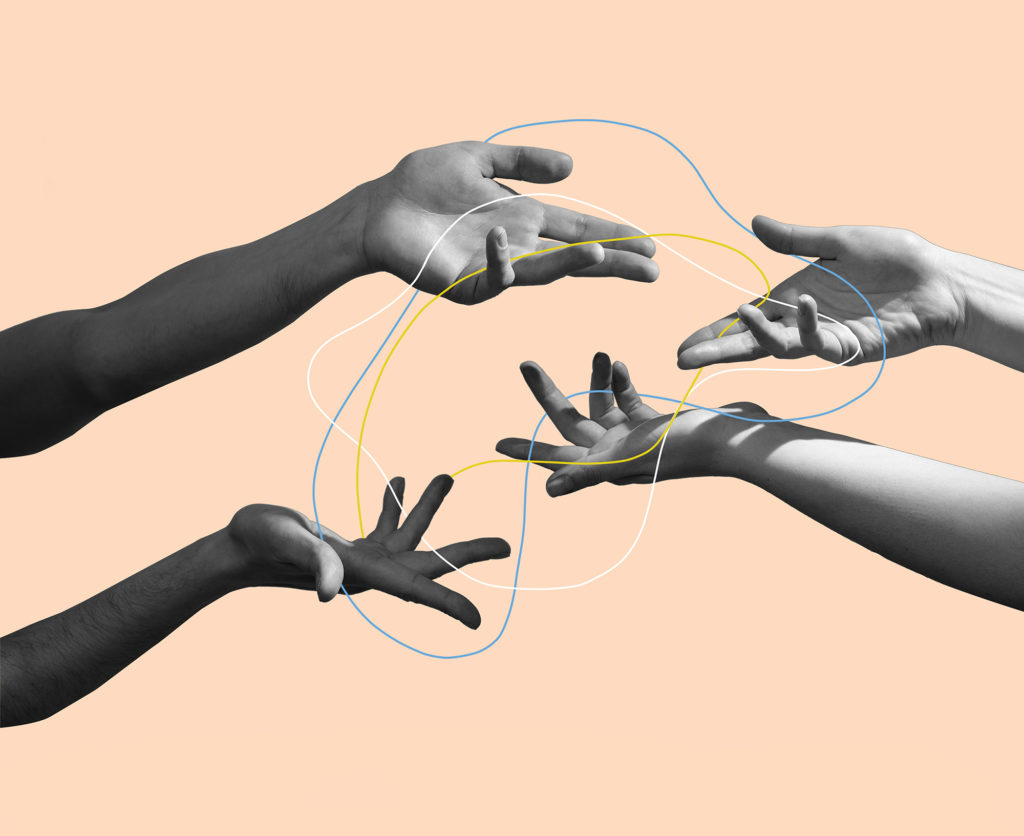
What Are the Bonds of Community?
How do we initiate the bonds of community; how do we maintain them; and how do we allow those bonds to help us continue to grow?
Certainly there is mutual responsibility: we have contributions to make to a community, and the community has contributions to make to us. We can choose not to be engaged, or we can choose to explore what we need and where to find it.
We are connected by our values, expressed partly through the testimonies. We are connected through our Quaker processes and through our willingness to sit in silence and wait for the Light that pulls us into the unity of the Spirit and puts into action the values that we discover experientially.
We share a process Quakers have gone through for hundreds of years that is the basis for being Quakers. The Light Within binds us together. We listen for it; we look for it. And often, when we sit together in silence, we gather together in unity that is available to all but which we, as Quakers, have nurtured, usually through a long period of time.
Community includes becoming involved in other people’s lives and life stories. We don’t have to be sitting next to somebody to create these bonds. It has been relatively easy for us to create these bonds as a result of joining a daily online silent worship group that is part of Portland (Maine) Meeting. It’s a small group of five to eight people, meeting five mornings a week for 30 minutes. Through the shared joys and concerns, as well as the discussions that evolved after the meeting, we began to find the same richness that one would find in any spiritual community. We began to share our lives. One person in this meeting met somebody, and they fell in love. They moved in together, and we watched his sparkle develop. With another, we shared her difficult health issues. With another, we saw her develop as an artist. Most of us in this group at one time or another got COVID, and we shared the process of recovery with one another. There were changes in the focus of each of our lives. Yes, we found the loving bond of community, if we so chose to take advantage of it.
It has been relatively easy for our online group to connect with the larger group of Portland Meeting. We hear messages that resonate with us, and we see the same people each week and occasionally a new face. Sometimes phone conversations evolve with a particular attender, or there are individual email exchanges. We decided to travel to Portland a year and a half ago to meet Quakers from this meeting that had become so important to us. We will be returning in April to celebrate our anniversary with them.
Bonds of community also include mutual contributions. This can mean adding our voice to business meetings; it can mean attending study groups; and it can even mean serving on committees. I have found that I can be so concerned about my individual needs that I do not recognize all the possible opportunities and connections for contributing to the community and taking advantage of all the community has to offer to me.
We have a rich tradition as Quakers of allowing our inner life to guide our lives in relation to the larger group and to national and international issues that call us to be involved. Nothing can separate us.
How Do We Develop Community with Other Like-minded Groups?
It is also possible to overcome a sense of isolation by participating in nearby groups with the same values. Some Quakers become involved with peace and justice groups, immigration, prison work, and homelessness, and bring their Quakerism into these broader connections. Some join meditation groups in addition to their Quaker meeting. That sense of independence that seems so intrinsic to us can lead to recognizing our community bonds that can be formed in many different ways.
In my case, I wanted an in-person spiritual group in addition to Quaker Zoom meetings, and I joined a nearby United Church of Christ (UCC) where my Quaker values and Christian values aligned. I have been greatly enriched by the combination of Quakerism with the UCC denomination.
We continually desire in-person spiritual relationships and expand our sense of what community bonds are. Having entered this new era of Zoom and hybrid meetings, we probably will not see them disappear. The connections that we have made through this pandemic will likely remain, because most in-person meetings have gained new attenders and members through Zoom. Most meetings are not willing to let those people go—we have simply expanded our sense of what community is.
We have expanded our sense of the balance between individual responsibility and our responsibility and desire for spiritual community. Isolation? Perhaps we do not need to be isolated because of physical limitations or our own lack of desire to be connected. We have a rich tradition as Quakers of allowing our inner life to guide our lives in relation to the larger group and to national and international issues that call us to be involved. Nothing can separate us from the Light Within nor from the bonds that connect us.


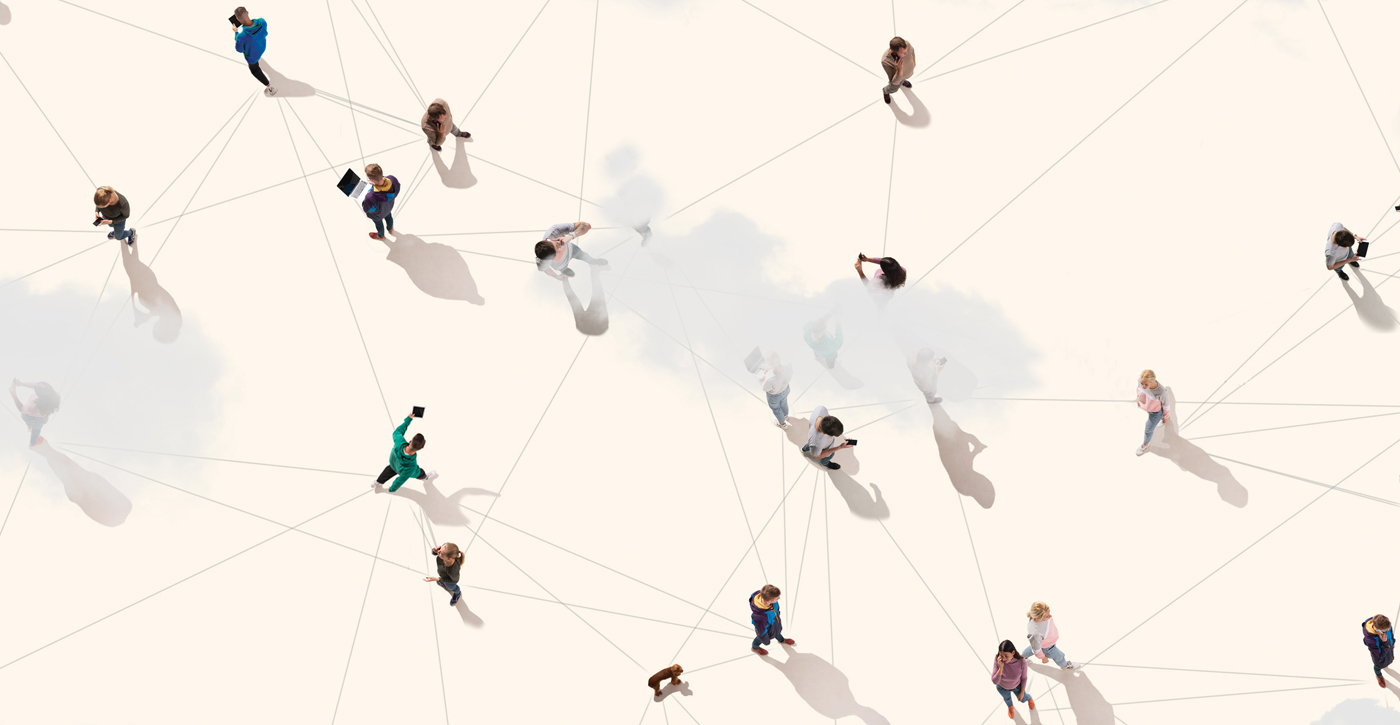
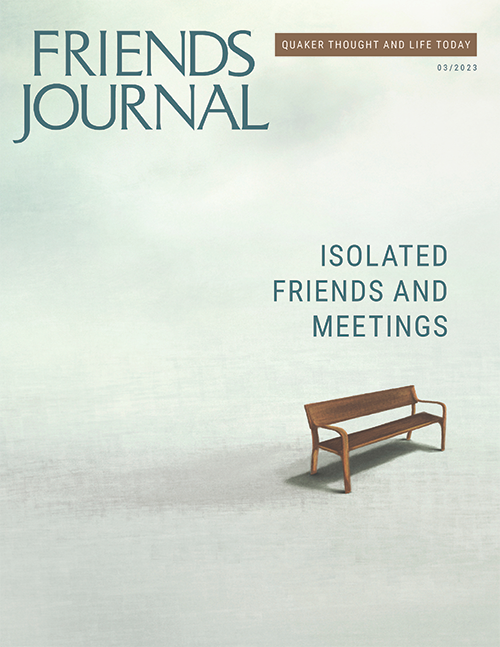
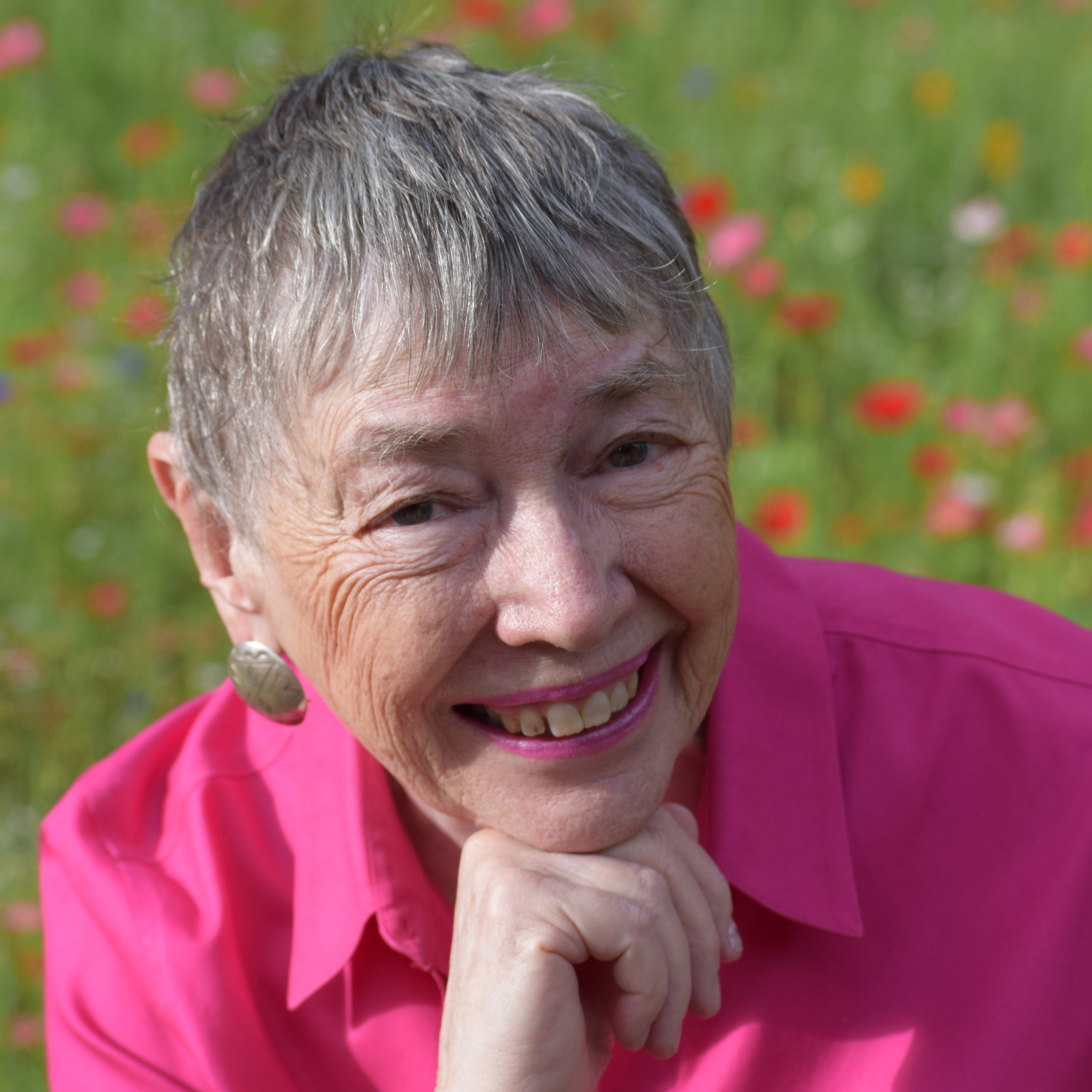
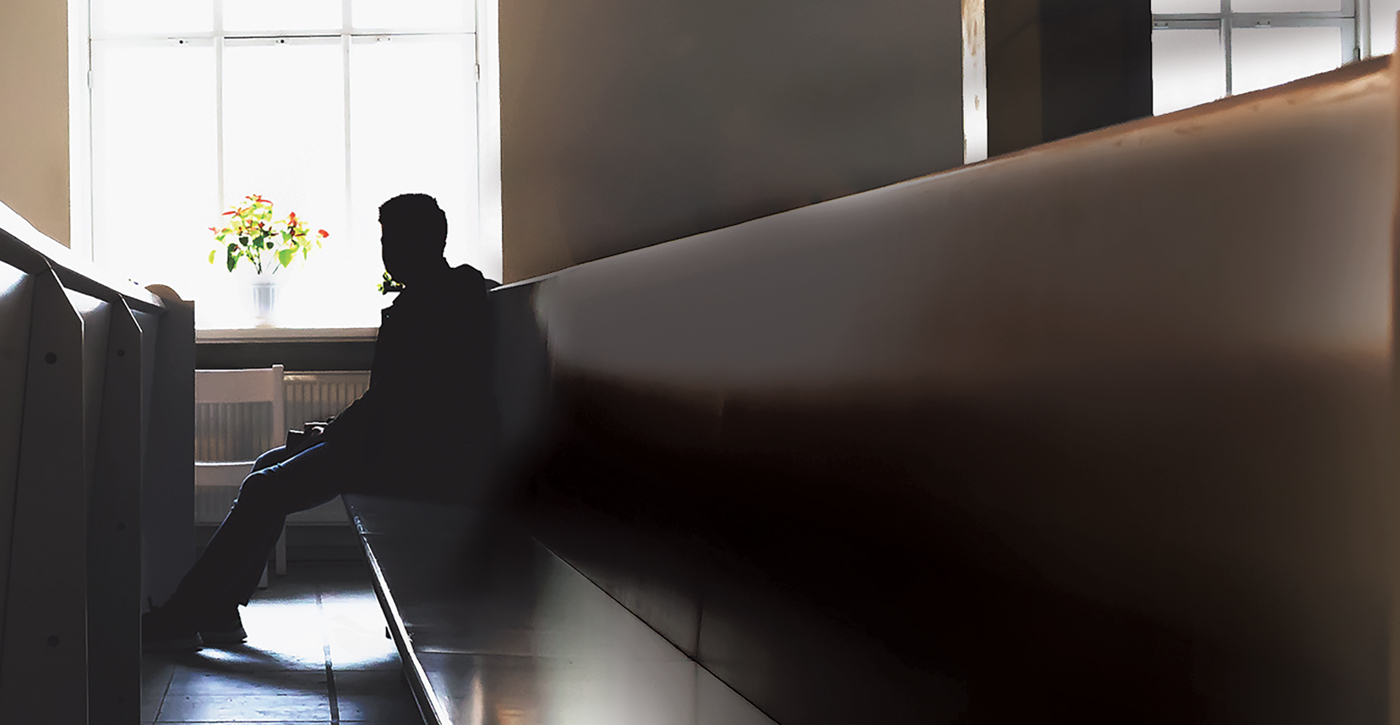
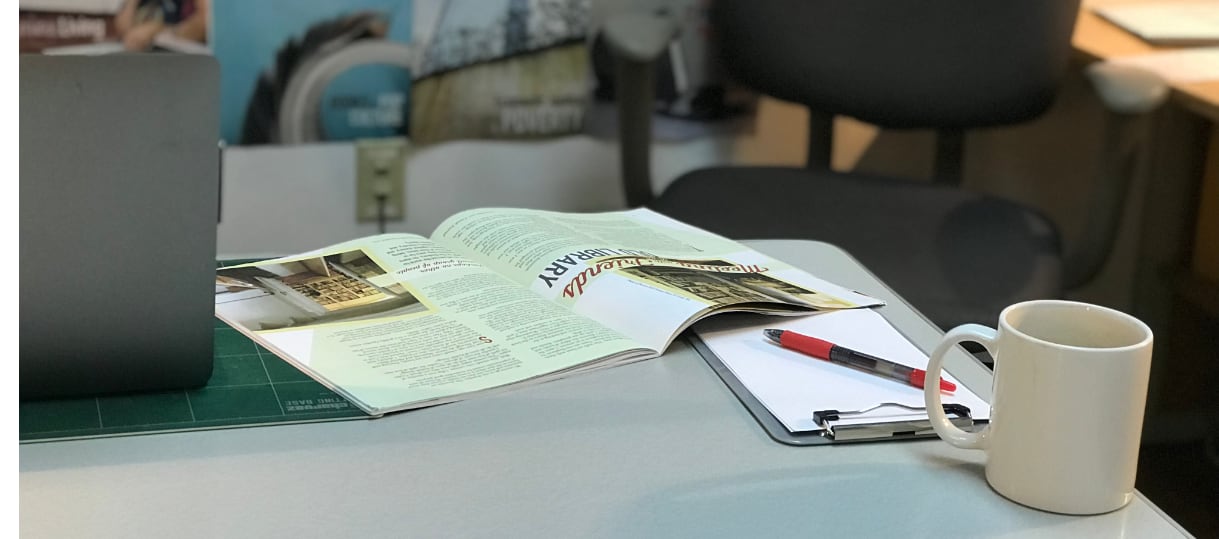
“During the pandemic, my husband and I began to explore Zoom meetings around the world. Over a period of about six months, we joined for online worship based in Dublin, Ireland; Christchurch, New Zealand; and 12 meetings within the United States.”
This sounds like the furthest from community. Quakers have thought that the monthly meeting that they attend is their spiritual home and community. This is a diluting and breakdown of the core Quaker community.